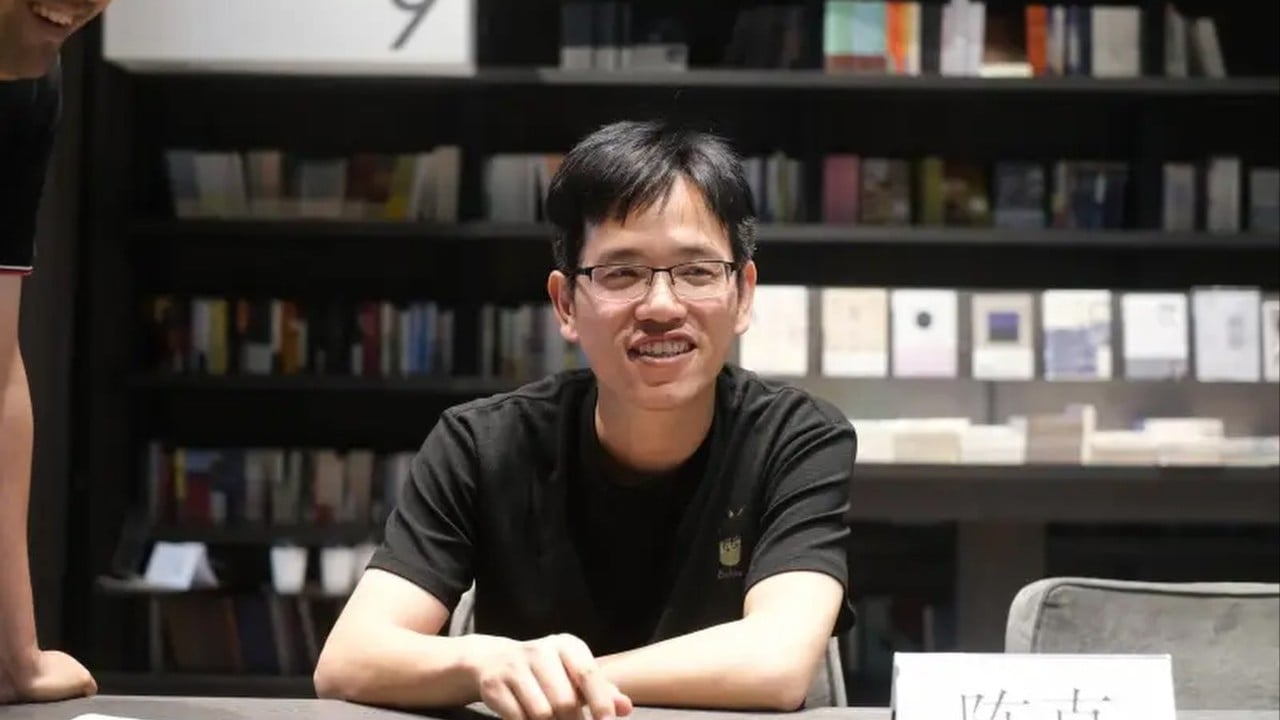Three years ago, Chen Zhi was a blue-collar factory worker in China. Then his posts on a philosophy forum went viral, and his whole life changed.
In late 2021, he asked for advice on the social media platform Douban about how to publish his translation of an academic book on the German philosopher Martin Heidegger.
His posts attracted attention from the Chinese media and internet users, who praised Chen – self-taught in both English and philosophy – for breaking stereotypes of migrant workers.
His time in the spotlight was brief, but it was enough to alter the course of his life. In late 2021, he left manual labour and soon took up a new role as editor of an academic journal at a vocational college in Shijiazhuang, capital of the northern province of Hebei.
His translation of American scholar Richard Polt’s Heidegger: An Introduction, considered one of the most authoritative works on the philosopher, was published in April, sparking renewed interest from the Chinese media and public.
Reflecting on the changes in his life and career, Chen said in an interview that “mental labour” was easier than factory work and allowed him more freedom.
“I no longer need to do 10 hours of physical labour every day, so I have more time for philosophy and thinking. I feel a little relieved,” he said.

Chen, a native of eastern Jiangxi province, said he had also noticed a difference in his social status and how he was treated by others.
Physical labour is looked down upon in China, he says, while intellectual work confers more prestige, and he feels he faces less discrimination now that he no longer works in a factory.
Still, his new position brings fresh challenges. Editing is a “careful” and detail-oriented job, and it is easy to make mistakes, Chen said, so he feels more pressure when working and from his bosses.
Though social media had led him to new opportunities, the 34-year-old’s brush with internet fame has not been entirely positive.
While much of the media coverage and online discussions initially painted him as a role model, Chen’s comments in interviews later brought scrutiny regarding his personal life and career choices. He says he feels misunderstood by how he has been portrayed.
For example, many online commenters accused Chen of being so absorbed in philosophy that he seemed uninterested in pursuing material wealth to support his family.
Many on social media saw him as an example of “Ah Q spirit”, or someone who engages in self-delusion to comfort himself rather than face reality – a term named after the titular character of a novella by 20th century Chinese writer Lu Xun.
Chen said that studying philosophy is not a form of “self-consolation” but rather a way to seek what he calls “essential life” – the pursuit of non-worldly things to explore the meaning of existence.
“Essential life is about how to exist more deeply and fundamentally,” Chen said.
“The fundamental purpose of my philosophical studies is to free myself from ‘ignorance’ and attain moksha,” he said, using a Buddhist term meaning liberation, emancipation or release.
He said the Buddhist concept of “ignorance” – being unable to understand things and principles clearly – described the state he hoped to transcend.
“I hope to become clearer about why, as a finite individual cast into this universe, I exist.”
He was also criticised because he did not appear to be close to his wife emotionally, even though she had helped him a lot.
After I became a ‘brain worker’, my family was able to gain some recognition
Chen said he had been indifferent to the idea of marriage, but he agreed to date and get married to make his mother happy.
“My material conditions were relatively poor at that time. Many blind dates disliked or looked down on me, but my wife never did. I was very touched,” Chen said. They got married in 2020.
“My family is very harmonious, but I am not good at expressing my love to my wife,” Chen added.
While Chen says he is not motivated by material things, he admits his financial situation is much more stable now. Before joining the vocational school, Chen often worked as a day labourer or did short-term gigs, so he did not have a steady income. Now he earns a stable wage and can support his family.
“After I became a ‘brain worker’, my family was able to gain some recognition,” he said.
As for his translation of Polt’s book, Chen said he was initially nervous about its publication because of the criticism he had received online. He said he was worried that the social media storm might affect the project, and that any potential translation errors could provoke more criticism.
But he said the publication of his translation has given him some support from the public and made him more confident.
“I used to consider myself a loser for a long time. But now I am not,” he said.


